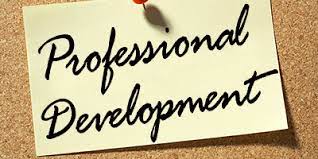Zig Ziglar once said, “The only thing worse than training employees and losing them is not training them and keeping them.” The takeaway is clear: The potential loss of dollars invested in employee development pales in comparison to the certain productivity loss inflicted by a mediocre workforce.
You’d be hard-pressed to find an executive who would dispute the wisdom of this insight. Even so, reality suggests that far too many employers have failed to take up professional development in any meaningful way.
From an employee’s perspective, this dearth of employer-sponsored professional development represents not only a frustrating lack of corporate empathy but a surefire ticket to career stagnation. To rise to their full potential, employees need to be challenged to grow. Apart from intentional development, opportunities for growth will be few and far between.
If you find yourself in an organization that has punted on their responsibility to train and develop future leaders, then my question for you is simple: What are you going to do about it? Will you allow yourself to stagnate just because your employer hasn’t taken the initiative in developing your skills? Will you simply skate by, sliding back into your chair to become one of the nearly 70% of Americans who are disengaged at work?
Before you punch in and check out, I want to offer an alternative perspective. What if, instead of accepting your lot in life, you took your development into your own hands? What if, instead of sliding back and settling in, you took the initiative and began to grow yourself as a professional? What if you could set yourself apart from the rest of the field with little more than a few hours per week of intentional self-investment?
Here are five ways to do for yourself what your employer won’t:
1. Earn a certificate in your field.
Depending on your industry, there are a number of certificate programs available to expand your professional skills. While an undergraduate certificate won’t substitute for a college degree, workers who complete these programs do generally earn more than those with only a high school diploma.
A graduate certificate program, though not as involved as a full-blown graduate degree, allows the career-orientated professional an opportunity to develop industry-specific skills beyond what he or she may have learned in college. A graduate certificate in business or human resources just might be the ticket to that next promotion or a more specialized post at the organization down the street.
Additionally, this option represents a more affordable and less time-consuming way to pick up important skills.
2. Enroll in an online course.
Short of enrolling in a certificate or degree program, a la carte coursework can be another excellent venue for professional development. Most online courses are offered on a flexible basis, allowing you to work your continuing education into your busy life.
There’s nearly an endless array of resources online. You can begin by looking at one of the many popular online universities you see advertised on television and the internet, but do be sure to check with any professional associations to which you belong for specific recommendations.
3. Speak at a conference or seminar.
To succeed in business, you must learn how to communicate clearly and compellingly — to your boss, your subordinates or even a room full of complete strangers. You can only go so far in your organization or your field without the ability to do so.
Volunteering to speak at conferences and seminars forces you to develop this skill in real time. More importantly, it gives you a platform from which to trumpet your unique perspective on your industry. With that increased level of notoriety, you’ll set yourself apart from your peers and, thereby, make yourself more valuable.
Not confident in your public speaking ability? No problem. Consider joining a local Toastmasters group to work on honing your oratory skills. You’ll not only develop this hugely important business skill, but you’ll create a swathe of new professional connections as well.
4. Expand your scope.
Here’s an idea: Instead of waiting for your boss to challenge you to grow, ask him or her for a new challenge. Take on a project outside your standard load. Scare yourself here. Think aspirationally. Focus not on what you’ve comfortably done in the past but what you want to accomplish in the future.
Once you’ve taken on your new project, grab every resource you possibly can to help you see it through to completion. Read books. Scour the internet. Reach out to contacts in other organizations. Do whatever you have to do to learn and grow into your expanded role.
5. Find a mentor.
Formal methods of professional development (online courses, training, etc.) are important, but there’s something unique about engaging the informal guidance of a trusted and respected mentor.
Find someone you admire, either in your organization or outside of it. Choose a leader who embodies the professional qualities you hold dear. Buy them lunch. Dissect their journey. Get to know the ins and outs of who they are and how they got to where they are. More than that, build a relationship. Process decisions with your new mentor. Learn to think like they think and ask the types of questions they ask.
You can’t put a value on this type of professional development. You can’t quantify it. But, with the help of a wise mentor, you’ll grow more in your vocation than you ever could by simply reading a book or taking a course.
Conclusion
If your employer has given up on developing its talent, don’t despair. You can do more for yourself than your organization ever could. The first step is recognizing that it’s on you to develop yourself as a professional. From there, your options are endless.
Take the opportunity to invest in yourself this year. In no time, you’ll be head and shoulders above your less-motivated coworkers. And, soon enough, you’ll have the chance to either climb the ladder at work or take your services elsewhere — to an employer who truly gets what Zig had to say about developing human potential.

